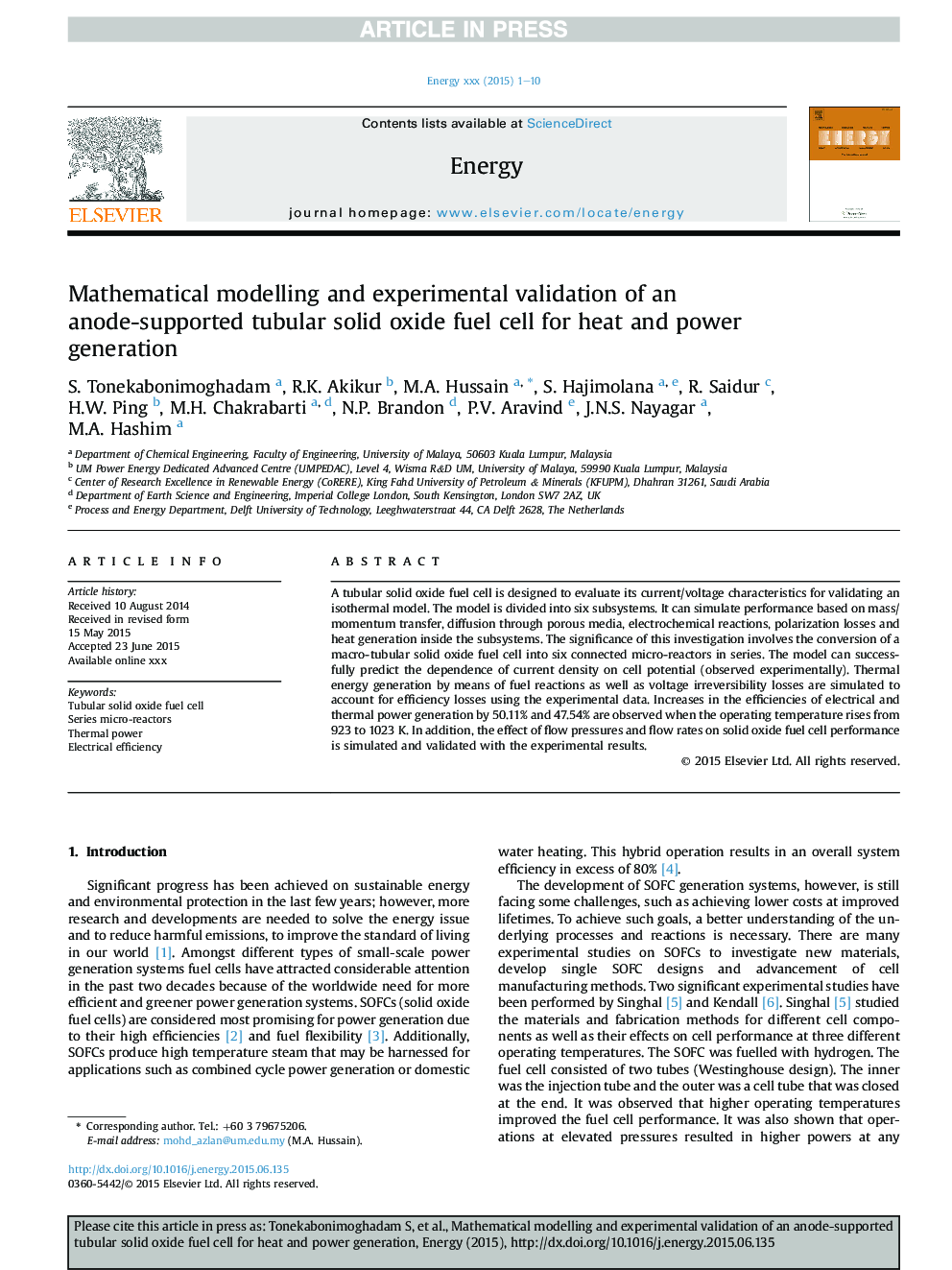| Article ID | Journal | Published Year | Pages | File Type |
|---|---|---|---|---|
| 8074597 | Energy | 2015 | 10 Pages |
Abstract
A tubular solid oxide fuel cell is designed to evaluate its current/voltage characteristics for validating an isothermal model. The model is divided into six subsystems. It can simulate performance based on mass/momentum transfer, diffusion through porous media, electrochemical reactions, polarization losses and heat generation inside the subsystems. The significance of this investigation involves the conversion of a macro-tubular solid oxide fuel cell into six connected micro-reactors in series. The model can successfully predict the dependence of current density on cell potential (observed experimentally). Thermal energy generation by means of fuel reactions as well as voltage irreversibility losses are simulated to account for efficiency losses using the experimental data. Increases in the efficiencies of electrical and thermal power generation by 50.11% and 47.54% are observed when the operating temperature rises from 923 to 1023Â K. In addition, the effect of flow pressures and flow rates on solid oxide fuel cell performance is simulated and validated with the experimental results.
Related Topics
Physical Sciences and Engineering
Energy
Energy (General)
Authors
S. Tonekabonimoghadam, R.K. Akikur, M.A. Hussain, S. Hajimolana, R. Saidur, H.W. Ping, M.H. Chakrabarti, N.P. Brandon, P.V. Aravind, J.N.S. Nayagar, M.A. Hashim,
